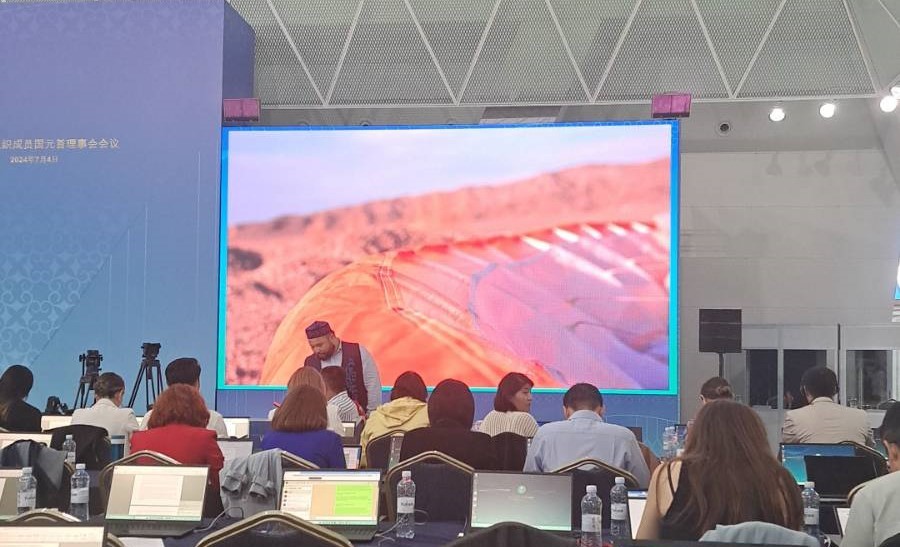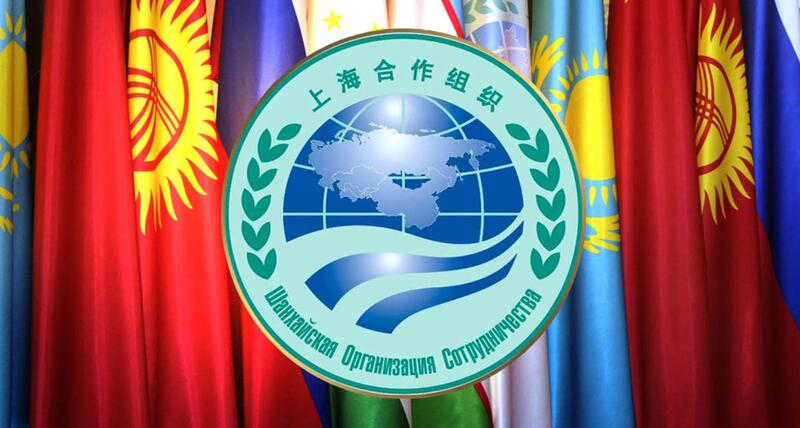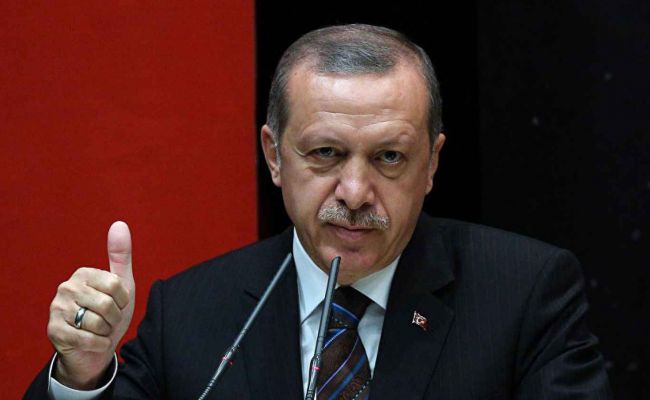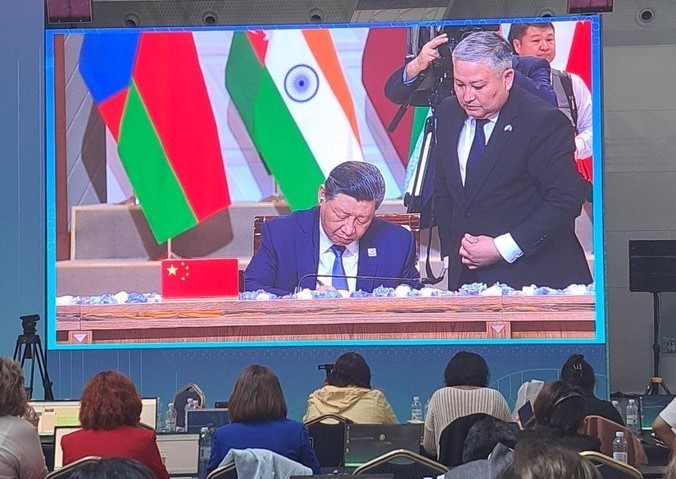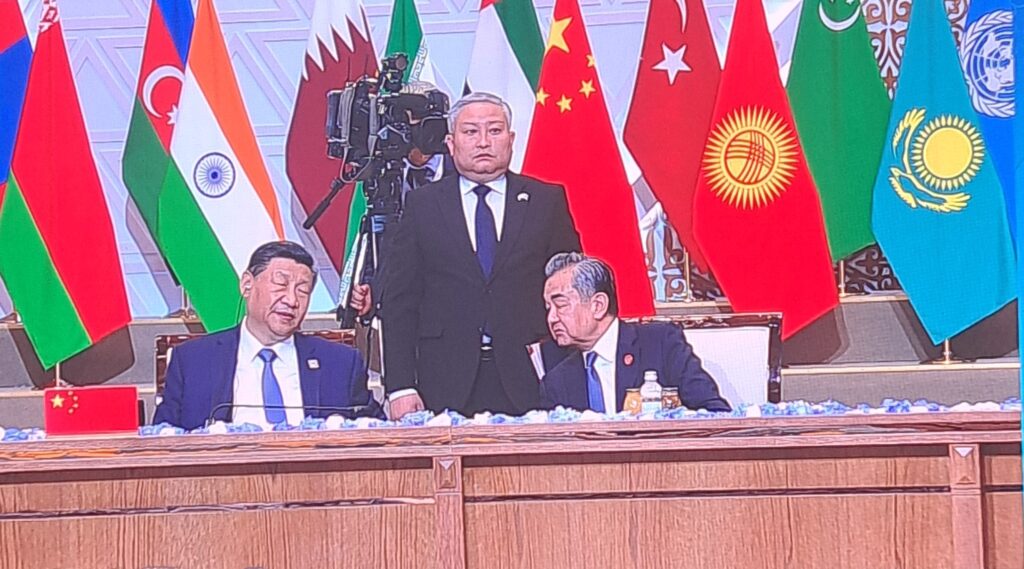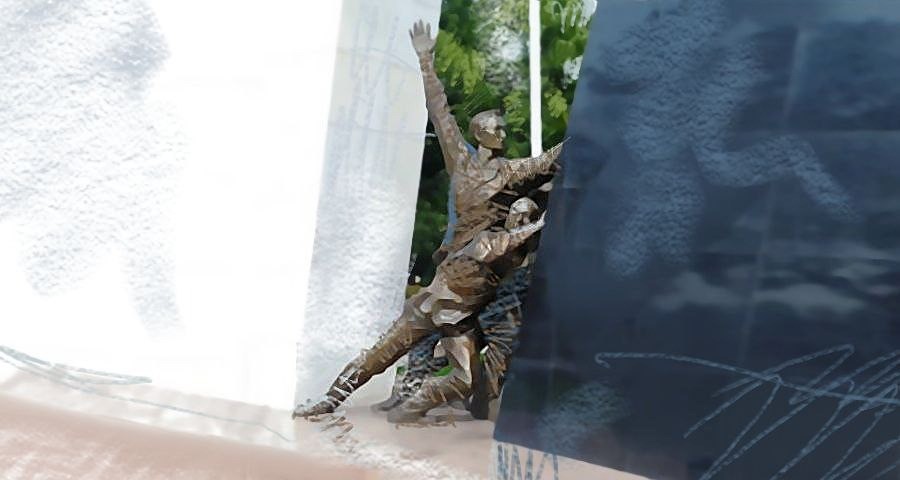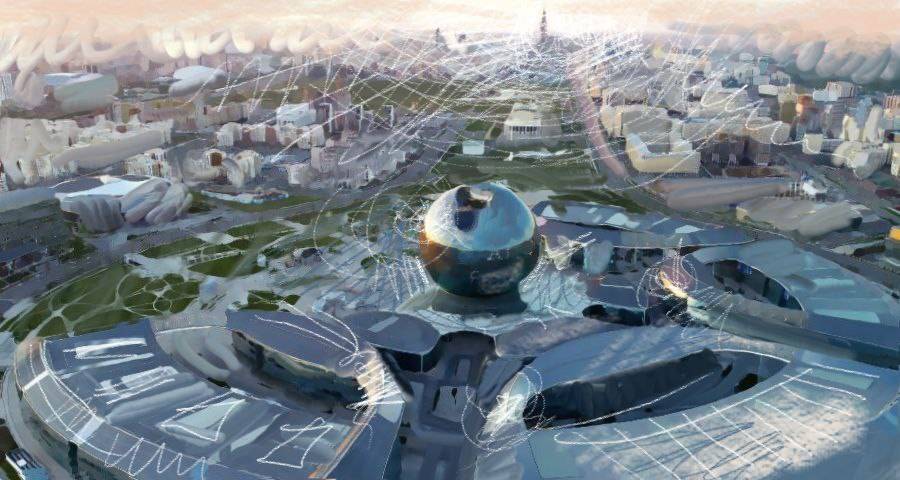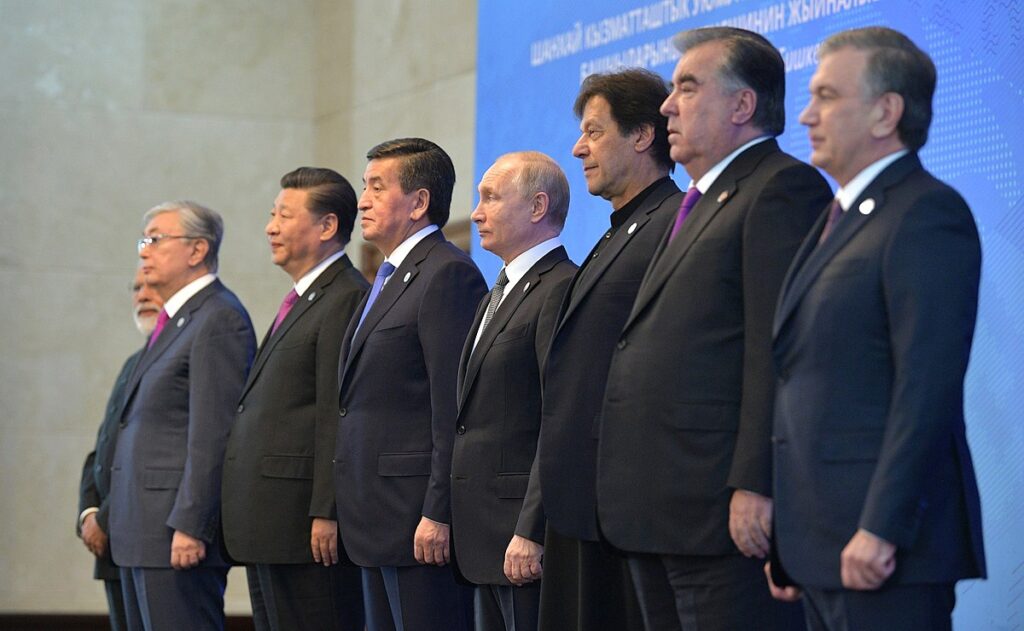The Times of Central Asia is reporting live from the SCO Summit in Astana.
Kazakhstan’s Red Carpet
Astana put on a fireworks show on Wednesday night as dignitaries gathered in the Kazakh capital for the Shanghai Cooperation Organization, a regional forum for talks on security, economic and other issues.
The event is a chance for landlocked, resource-rich Kazakhstan to showcase its culture, hospitality and rising diplomatic profile at a time when wars in Ukraine and Gaza, along with big power tension and the threat of climate change, tend to dominate headlines.
High-stepping honor guards, motorcycle escorts, military marching bands and greeters in glittering traditional costumes welcomed the leaders arriving in Astana, which boasts a collection of shiny, futuristic-looking buildings that were constructed with the help of Kazakhstan’s oil wealth after independence from Soviet rule in 1991.
The nine full members of the SCO are India, Iran, Kazakhstan, China, Kyrgyzstan, Russia, Pakistan, Tajikistan and Uzbekistan. Belarus is expected to become a new member at this week’s summit.
Putin to Tokayev: I’ll Be Back
Russian President Vladimir Putin, responding to an invitation to visit Kazakhstan again, has suggested that he will return on a state trip in November.
Putin spoke about another visit in a conversation on Wednesday with Kazakh President Kassym-Jomart Tokayev on the sidelines of the Shanghai Cooperation Organization meeting in Astana, Russia’s official news agency, TASS has reported.
“I believe this is simply necessary to maintain the pace of cooperation between our countries,” Tokayev said. “I hope to see you again, this time on a state visit to our country.”
According to Tass, Putin thanked Tokayev and said: “Of course, it is most rational to do it in connection with the summit of the Collective Security Treaty Organization. Thank you for the invitation; I certainly accept it.”
Kazakhstan has the rotating chairmanship of the Collective Security Treaty Organization, or CSTO. The security alliance includes Russia and the former Soviet republics of Kazakhstan, Tajikistan, Kyrgyzstan, Belarus and Armenia. However, Armenia appears close to pulling out of the alliance because it feels betrayed by Russia its’ inaction when rival Azerbaijan made military gains over Armenia.
Erdogan to Putin: Let’s Trade
Türkiye, which holds the status of “dialogue partner” in the SCO and treads a delicate line in the war between Russia and Western-backed Ukraine, wants to boost trade with Moscow.
Turkish President Recep Tayyip Erdogan and Russian leader Vladimir Putin met in Astana on Wednesday.
“The Turkish president expressed confidence in reaching the ambitious trade volume goal of $100 billion, citing strong potential for growth in bilateral relations,” Türkiye’s official Anadolu news agency stated. Reports have indicated trade between the two countries was above $65 billion in the last couple of years.
Anadolu quoted Erdogan as saying that “we can take serious steps” on plans for the Sinop Nuclear Power Plant in Türkiye’s Black Sea region. Russia is potentially a partner in that electricity-producing project. Rosatom, Russia’s nuclear energy agency, is currently building Türkiye’s first nuclear power plant in Mersin in the south of the country.
Türkiye, a NATO member, has maintained economic and political ties with both Russia and Ukraine. Western sanctions on Russia are reported to have curbed some of Türkiye’s trade with Russia.
Where’s Modi?
Indian Prime Minister Narendra Modi didn’t show up at the SCO summit in Astana, sending the foreign minister in his place. There are a few unconfirmed theories about why Modi isn’t attending.
One is that he didn’t want to be linked to any anti-American rhetoric that might pop up at the summit, at a time when India is developing closer relationships in the West. Another is that he wanted to keep personal distance this time around from a forum in which China, Central Asia’s biggest trade partner, is likely to dominate. India is a growing economic power and there are periodic military tensions on the border with China, though both countries have sought stability in their relationship with each other.
An official reason for Modi’s absence was that the dates of the Astana meeting roughly coincided with an Indian parliamentary session.
Prime Minister Shehbaz Sharif of Pakistan, a traditional adversary of India, is attending the SCO summit.
As India pursues a balancing act in international relations, Modi is expected to travel to Moscow next week to meet the Russian President. India’s interest in Russian oil and gas as a way to feed its economic growth is a likely topic on the agenda, some analysts believe.
“There will be – at the core of the conversations – the topic of energy,” geopolitical strategist Velina Tchakarova said on the X platform on Wednesday.
Guterres on Tour
U.N. Secretary-General António Guterres said he has “discussed the world’s most dramatic conflicts” with Kazakhstan’s president after arriving in Astana.
Guterres, who was likely referring to the wars in Ukraine and Gaza, said he and President Tokayev also talked about the “regional situation in Central Asia.”
Earlier, the United Nations chief said on the X platform that he appreciated Kyrgyzstan’s decision to designate a mountain in the country’s Tian Shan range as “U.N. peak.”
“The Kyrgyz Republic stands on the frontlines of the climate crisis despite its negligible contribution to the problem,” said Guterres, who had traveled to Kyrgyzstan and met President Sadyr Japarov as well as young climate activists.
Kyrgyzstan has tried to create artificial glaciers to combat the negative effects of rising temperatures.
